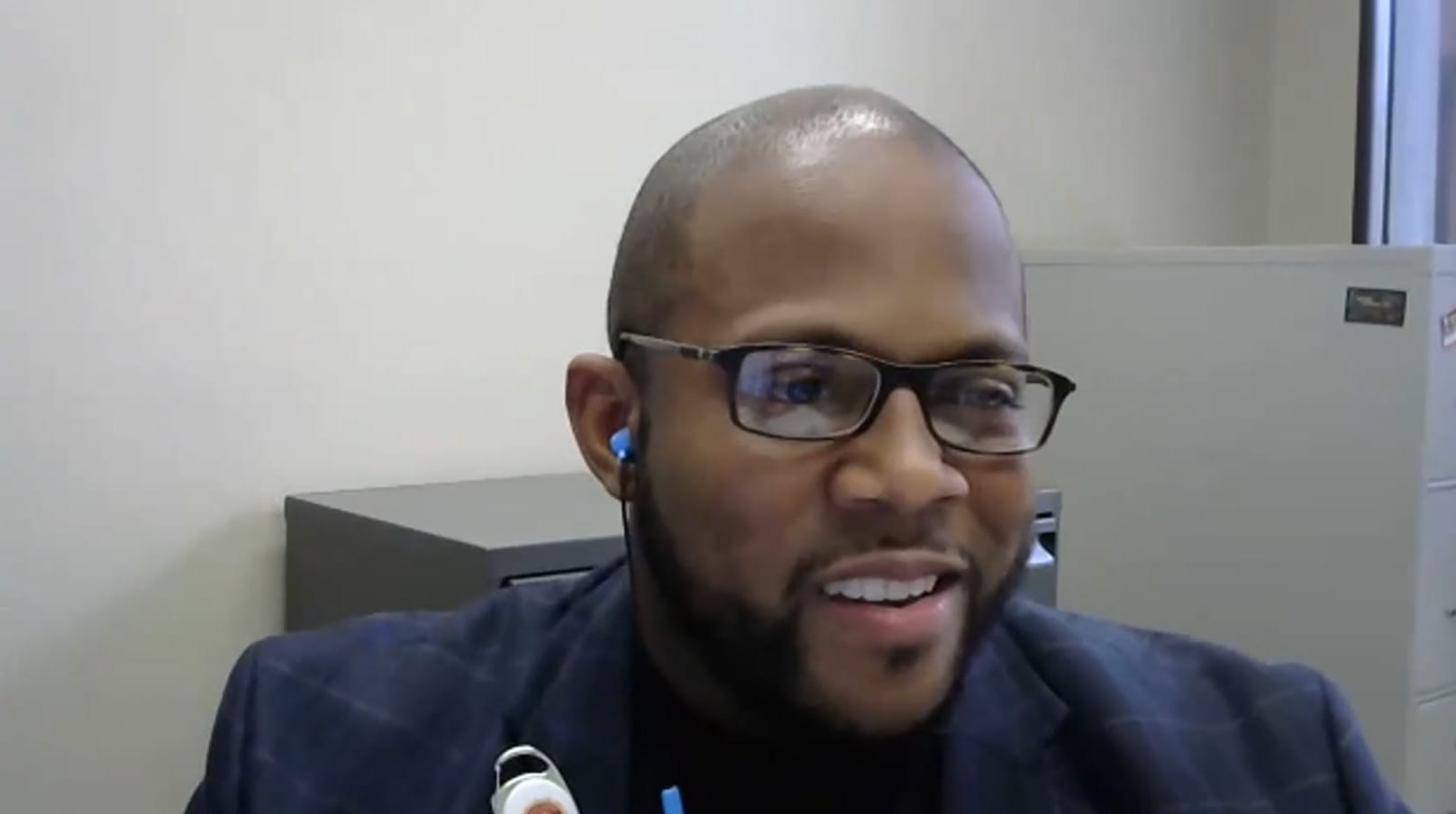UAMS Panel Discusses Value of Mentorship for Underrepresented Minorities
| The University of Arkansas for Medical Sciences (UAMS) Division for Diversity, Equity and Inclusion (DDEI) hosted a virtual panel discussion that focused on the importance of mentorship for staff members from underrepresented minority groups.
Sharanda Williams, assistant dean for student affairs and diversity in the UAMS College of Medicine, said mentors serve as guides to help people along their career paths. “They’re going to encourage growth and give you direction; they’re going to be a champion for you,” she said.
Williams said a good mentor serves as a cheerleader but also isn’t afraid to offer admonishment when it’s needed.
“You don’t want to discourage your mentees,” she said. “You want them to be able to trust and confide in you. But you have to be able to tell them the truth if they’re not on the right path.”
Williams also offered advice for those who are interested in being mentored, suggesting that they should have clear ideas about what they hope to accomplish. “And if you want a mentor, don’t be afraid to ask,” she said.
Derrick Reives, founder and CEO of the mentorship platform UpSquad, emphasized the importance of building personal connections.
“To me, that takes mentoring to the next level,” he said. “There’s an old saying: ‘People don’t care how much you know until they know how much you care.’ I think that really applies to mentoring.”
Reives said the reward for good mentors is the knowledge that they’re making a difference.
“A good mentor is trying to see through what’s happening with a person and look at their heart, at who that person really is,” he said. “That’s how you really help and develop a person.”
Toan Bui, M.Ed., a curriculum development specialist in Clinical Nursing Informatics and the Clinical Education Department, highlighted the importance of sharing knowledge and building long-term relationships. “To me, it’s about transferring experience so mentees have the information and tools that they need to do their jobs,” he said.
A few years ago, Bui had no intention of mentoring anyone because he didn’t feel that he had the experience to do so. But as he learned and grew as a leader, he realized the value of sharing his knowledge with others.
“In this organization, if we have many talented people with mentoring skills, I think that will advance and benefit each individual department,” he said.
Bui said mentorship should be tailored to the personalities and learning styles of mentees. It’s also important to set clear goals and track their progress, he said.
For Kazandra Wilson, Ed.D., advocate and community engagement coordinator in DDEI’s Pathways Academy, mentorship involves collaborating with people who would benefit from her help, advice or experience. This isn’t limited to matters of career advancement, she said.
Newly hired employees need help not only with getting acclimated to their roles but also with navigating their new organization, she said. Wilson, who is from Mexico, noted that this adjustment can be particularly difficult for those who didn’t grow up in the United States.
“It can be hard sometimes to understand the system and to find people who are willing to take the time to explain things — like how to fill out tax or health care paperwork — that might seem trivial or normal to them,” she said. “I think that’s a big challenge for new employees.”
Wilson said relationships are built as mentees acknowledge their needs and as mentors show their willingness to help. “If you’re trying to be a mentor, you have to be kind, you have to be understanding, and you have to be humble,” she said.
Event moderator Nicholas Pettus, manager of diverse student recruitment for DDEI, noted that UAMS collaborates with the UpSquad platform to facilitate mentor-mentee relationships. Those who are interested in taking part in this effort can sign up for free.
The event, titled Bridge Builders: A Path to Mentorship “A Voice for Underrepresented Staff,” was organized by the DDEI Staff Subcommittee.
